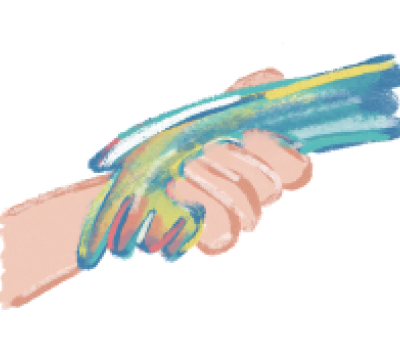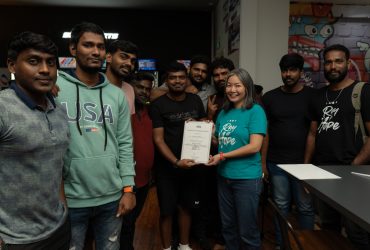As Singapore moves into Phase 3 of its reopening on the 28 December 2020, most of us will be able to hang out with more of our friends and relatives at restaurants, shopping malls, and special events. Social activities allow us to tap on our social support network to help us cope with daily work and life stresses. This provides reprieve for our general well-being.
However, this will not be the experience of our migrant workers. Migrant workers will still not be permitted to leave their dormitories for social gatherings. They will …
Read more
As Singapore moves into Phase 3 of its reopening on the 28 December 2020, most of us will be able to hang out with more of our friends and relatives at restaurants, shopping malls, and special events. Social activities allow us to tap on our social support network to help us cope with daily work and life stresses. This provides reprieve for our general well-being.
However, this will not be the experience of our migrant workers. Migrant workers will still not be permitted to leave their dormitories for social gatherings. They will have to seek permission from the Ministry of Manpower each time they need to leave their dormitories, and only for specific essential errands such as medical appointments, work pass related errands, and banking services among others. This continues to restrict migrant workers’ movements, thereby reducing their avenues of coping and hinder workers from seeking help when they face difficulties.
As the mental health of migrant workers continue to be a grave concern, we see the need to continue a crisis management helpline with native speakers to attend to the mental health needs of workers and to continue to provide casework support, group work, risk assessment and preventive mental well-being intervention for migrant workers.
What we are raising funds for?
Practical needs of Beneficiaries:
1. Financial Assistance – Migrant workers who are in financial distress may have experienced family tragedies, unpaid or underpaid salaries, unpaid medical leave wages or medical expenses. Emergency financial assistance allows them to tie over their presenting difficulties.
2. Transportation – As migrant workers are still not allowed to take public transport, these funds are to be used for private hire transport for migrant workers to commute from dormitories to offsite counselling, medical appointments or consultation sessions if their employers are reluctant to support them.
Who are we?
Here With You- Migrants’ Helpline (https://www.facebook.com/herewithyouhelpline) was started in April 2020 by a group of social workers in response to the spread of COVID-19 cases within the dormitories. We were concerned about the mental health, and unmet needs of migrant workers. Our diverse group of volunteers includes native speakers (Bengali and Tamil), mental health professionals and migrant workers operating together to serve our migrant friends. Since we started, we have handled more than 1700 calls from migrants, and have inducted more than 100 volunteers.
What do we do?
We define our services to include three key components:
1. Casework Management
Basic risk assessment and management: Psychological First Aid, counselling support, identification of risk of self-harm or suicide.
We work closely with government agencies to attend to workers exhibiting high risk concerns; providing translation support, risk assessment and de-escalation. We have received referrals from the Ministry of Health and the National CARE Helpline for workers in quarantine who are emotionally dysregulated and require psychological intervention. We also support the Ministry of Manpower, for workers who require monitoring support prior to their repatriation.
Problem solving and providing resources for immediate crisis management. (unpaid salary, unreported work injuries, access to healthcare and legal assistance, forced repatriation, emotional distress, issues with accommodation and non-provision of/unhygienic food, requests for basic necessities and hygiene items, challenges in transferring employers, and psychological risk concerns).
Providing updated information on policies and combating fake news.
Liaising with other help-providing NGOs and government institutions (MOM, MSF, MOH) for casework follow-up.
2. Group Work, to facilitate support for and among workers.
Educational groups, to provide timely information on statutory rights, MOM’s policies and improving mental well-being.
Support groups, to build mutual support among workers who are mentally and emotionally distressed, and for workers facing challenges with their statutory claims.
3. Community Outreach and public education: adopting a collaborative approach to reach out to workers in the dormitories
Collaborate with ground-up migrant groups to provide public education on mental health and employment-related issues, and bolster informal support for migrant workers.
We hope to continue running the Here With You – Migrants’ Helpline beyond the COVID-19 pandemic given the inherent vulnerabilities of the migrant worker population.
We have been featured on:
Berita harian: https://m.facebook.com/story.php?story_fbid=3719616154718233&id=141669345846283
Mothership: https://mothership.sg/2020/10/migrant-workers-mental-helpline/
About Ray of Hope
100% of your donations to Ray of Hope go to people in need. We do not take a cut from the funds. We even cover 3rd party credit card charges that other crowdfunding platforms deduct from your donation for campaigns.
100% of all campaigns are also fully verified, so you know your funds goes to real people with real needs.
We take donor accountability very seriously – with yearly audited accounts and strong governance in place to ensure that your donations is properly channeled to the beneficiaries.
Ray of Hope is a registered charity and a member of the National Council of Social Services.
Read Less


















